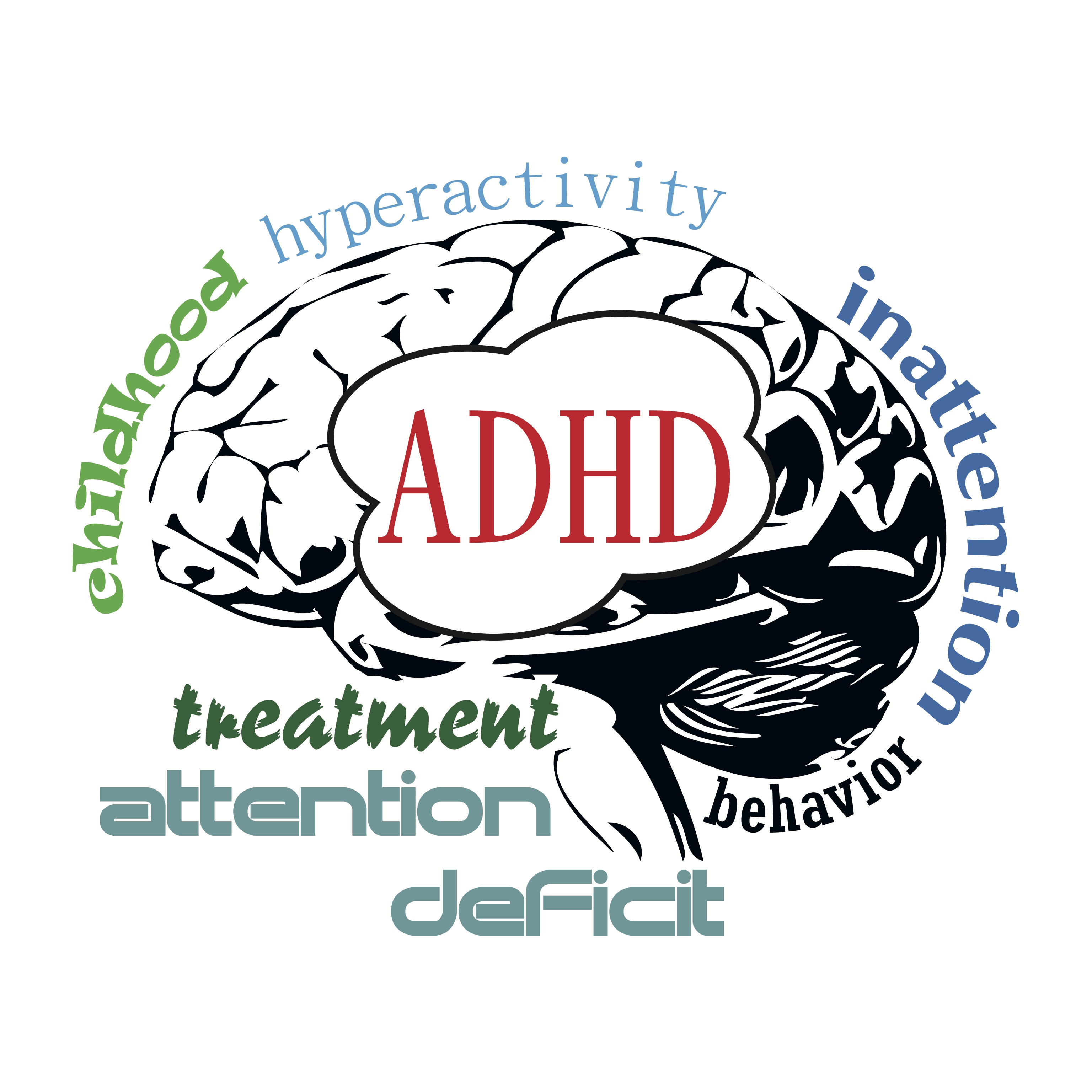Understanding The ADHD Brain: A Journey Inside Our ADHD Minds

Table of Contents
Neurobiological Differences in the ADHD Brain
The ADHD brain differs significantly from neurotypical brains, primarily in its neurotransmitter systems and brain structure. Understanding these differences is crucial to comprehending the challenges faced by individuals with ADHD.
Dopamine and Norepinephrine Imbalances
Dopamine and norepinephrine are neurotransmitters vital for attention, motivation, and executive function. In the ADHD brain, imbalances in these neurotransmitters are believed to play a significant role.
- Impact on Attention Span: Low dopamine levels can lead to difficulty focusing and maintaining attention, contributing to distractibility and a shorter attention span. The prefrontal cortex, a brain region crucial for executive functions, is particularly affected.
- Impact on Impulsivity: Imbalances in dopamine and norepinephrine can increase impulsivity, making it difficult to inhibit actions or consider consequences.
- Impact on Hyperactivity: Norepinephrine, involved in regulating arousal and alertness, may contribute to hyperactivity and restlessness observed in some individuals with ADHD.
These neurotransmitter imbalances disrupt the intricate communication pathways within the brain, impacting various cognitive processes. Understanding the roles of dopamine, norepinephrine, and other neurotransmitters in ADHD neurobiology is essential for developing effective treatments.
Structural and Functional Brain Differences
Research using brain imaging techniques has revealed structural and functional differences in the ADHD brain.
- Brain Volume Differences: Some studies suggest smaller volumes in certain brain regions, including the prefrontal cortex, caudate nucleus, and cerebellum.
- Brain Connectivity: Differences in the connections between brain regions have been observed, affecting communication efficiency.
- Brain Activity Differences: Functional MRI (fMRI) studies have shown altered brain activity patterns during tasks requiring attention and executive function. These differences are often seen in areas responsible for planning, decision-making, and impulse control.
These findings, obtained through brain imaging (fMRI, structural MRI), highlight the complex neurological underpinnings of ADHD and emphasize the need for a comprehensive understanding of brain connectivity in ADHD brain scans.
Genetic and Environmental Factors
The development of ADHD is a complex interplay of genetic and environmental factors.
- Genetic Predisposition: ADHD has a strong hereditary component, with family history being a significant risk factor. Specific genes involved in dopamine and norepinephrine pathways have been identified.
- Prenatal Factors: Exposure to toxins, infections, or complications during pregnancy may increase the risk of developing ADHD.
- Early Childhood Experiences: Adverse childhood experiences, such as trauma or neglect, can contribute to the development or severity of ADHD symptoms.
Understanding the ADHD genetics and the influence of environmental triggers is critical for identifying ADHD risk factors and developing preventative strategies.
Cognitive Impacts of the ADHD Brain
The neurobiological differences in the ADHD brain significantly impact various cognitive functions, leading to a range of challenges in daily life.
Executive Function Deficits
Individuals with ADHD often experience significant difficulties with executive functions. These include:
- Planning and Organization: Struggling to plan activities, prioritize tasks, and organize materials, leading to procrastination and disorganization.
- Time Management: Experiencing "time blindness," difficulty estimating time needed for tasks, and struggling to meet deadlines.
- Working Memory: Challenges in holding information in mind, performing mental calculations, and following multi-step instructions.
These executive dysfunction challenges manifest in various aspects of life, impacting academic performance, workplace productivity, and personal relationships. Overcoming these planning difficulties requires specific strategies and support.
Attention and Focus Challenges
A core characteristic of ADHD is difficulty with attention and focus. This can manifest in different ways:
- Inattentive ADHD: Characterized primarily by difficulty paying attention, easily becoming distracted, and struggling to follow instructions.
- Hyperactive-Impulsive ADHD: Characterized by excessive activity, impulsiveness, and difficulty sitting still. Some individuals present with a combination of both.
- Sustained Attention: Difficulty maintaining focus on a task for an extended period.
- Selective Attention: Challenges filtering out irrelevant stimuli and concentrating on the relevant information.
Improving focus strategies is crucial for managing these attention deficit challenges.
Emotional Regulation Difficulties
The ADHD brain often struggles with emotional regulation, leading to:
- Impulsivity: Acting on emotions without thinking about the consequences.
- Mood Swings: Experiencing rapid shifts in mood and emotional lability.
- Emotional Dysregulation: Difficulty managing intense emotions and coping with stress.
These emotional dysregulation challenges can significantly impact relationships, self-esteem, and mental health. Addressing these issues is a vital aspect of managing ADHD.
Understanding and Managing the ADHD Brain
Effectively managing ADHD involves understanding the condition, seeking appropriate support, and implementing strategies for coping with associated challenges.
Diagnosis and Assessment
A proper ADHD diagnosis requires a comprehensive evaluation by a qualified professional. This typically involves:
- Clinical Interviews: Gathering detailed information about symptoms, history, and impact on daily life.
- Behavioral Assessments: Using standardized tests and questionnaires to assess attention, impulsivity, and hyperactivity.
A professional ADHD assessment is crucial for accurate diagnosis and personalized treatment planning.
Treatment Options
Several treatment options are available to manage ADHD:
- Medication: Stimulant and non-stimulant medications can help improve focus, attention, and impulse control.
- Behavioral Therapy: Techniques like cognitive behavioral therapy (CBT) can help individuals develop coping mechanisms and strategies for managing symptoms.
- ADHD Coaching: Provides personalized guidance and support in various aspects of life, including organization, time management, and goal setting.
The most effective ADHD treatment often involves a combination of medication and therapy, tailored to individual needs.
Lifestyle Strategies
Lifestyle changes can significantly support individuals with ADHD:
- Sleep Hygiene: Prioritizing sufficient sleep and establishing a regular sleep schedule.
- Healthy Diet: Eating a balanced diet and minimizing processed foods and sugar.
- Exercise: Regular physical activity can improve focus, mood, and energy levels.
- Structured Environment: Creating an organized and predictable environment can minimize distractions and improve productivity.
- Mindfulness: Practicing mindfulness techniques can enhance self-awareness and emotional regulation.
Adopting these ADHD lifestyle strategies can significantly contribute to better ADHD management.
Conclusion
Understanding the ADHD brain requires a comprehensive perspective that encompasses its neurobiological underpinnings, cognitive impacts, and effective management strategies. We've explored the imbalances in neurotransmitters, structural brain differences, and the consequent challenges with executive function, attention, and emotional regulation. Effective ADHD management involves a multi-faceted approach including professional assessment, medication, therapy, and lifestyle adjustments. Understanding your ADHD brain is a journey of self-discovery. If you suspect you or a loved one may have ADHD, seek a professional assessment to explore effective treatment options and begin building a path toward better management and a fulfilling life.

Featured Posts
-
 Pregnant Cassie And Husband Alex Fine Shine At Mob Land Premiere
May 13, 2025
Pregnant Cassie And Husband Alex Fine Shine At Mob Land Premiere
May 13, 2025 -
 Chris And Meg Experience A Wild Summer
May 13, 2025
Chris And Meg Experience A Wild Summer
May 13, 2025 -
 Met Gala 2024 Leonardo Di Caprio And Vittoria Cerettis Red Carpet Arrival
May 13, 2025
Met Gala 2024 Leonardo Di Caprio And Vittoria Cerettis Red Carpet Arrival
May 13, 2025 -
 Zber Dat Pre Atlas Romskych Komunit Klucove Informacie Pre April
May 13, 2025
Zber Dat Pre Atlas Romskych Komunit Klucove Informacie Pre April
May 13, 2025 -
 Cassidy Hutchinson Memoir Details On Her Jan 6 Testimony And Experiences
May 13, 2025
Cassidy Hutchinson Memoir Details On Her Jan 6 Testimony And Experiences
May 13, 2025
